Before you pick up a brochure, study a port of call, or ring up Aunt Min to tell her youre going on a cruise, decide what you expect from the experience. It sounds basic and a bit like psychoanalysis, but cruising has changed in the past fifty years and no longer resembles pre-World War II sea travel. What you expect from the vacation and what you get may be worlds apart.
Do you want to visit a resort or be one with the sea? On some shipsthe ones most people choosecruisers notice that theres an ocean outside the window on their walk from dinner to the 8:00 P.M. show; but otherwise, the ocean is unimportant. On other cruises, however, vacationers can steer the ship or swab the deck. Still other ships offer a combination of both worlds.
Many first-time cruisers expect traditional nautical decor such as wooden decks, brass handrails, and a spot where you feel ocean breezes, smell salt air, and watch the sun dip below the far horizon. While tradition can still be found, dont expect it on the mammoth newer ships. Atriums now extend from bottom to top decks; color schemes run from rich greens and browns to electric magentas and pinks. Casinos speak in neon, spas massage flesh, cigar bars fill up, and shops push Rolexes. The ocean is still out there. Somewhere. The cruise experience, however, is a palate of colors, social activities, and ports of call.
Most of todays cruise ships are, in reality, those resorts that just happen to float, and thats what most people want. For some, its a camp for big kids, and they fill their days with scheduled activities. It bears a striking resemblance to other family vacations, but without the stress of planning and paying as you go.
Compare a cruise vacation to a self-guided road trip where travelers pick a destination, map out a route, decide when to arrive, and guess how long it will take to get there. They pencil in time for breaks and, when finished, tell their spouse to be ready to leave by 6:30 A.M. The couple must constantly reach agreement on when to eat, what to do, and how to handle the cars ping-ping sound as they endure hours of monotonous drive time.
On a cruise, someone else worries about the details. Passengers scan a smorgasbord of activities, pick those they like and ignore those they dont. If they wish, they do nothing. At dinner, they show up and pick an entre, an appetizer, a dessert, and two or more other courses. If still hungry, they order a second entre. They get off in St. Thomasif they want. Or not. If they forgot to pack an iron, they turn to the room steward and ask for one. Its now his problem. Servants constantly ask if everything is okay, turn the bed down at night, place a chocolate on the pillow, and make sure youre happy on an emotional, do-you-feel-good level. Passengers feel as if theyve moved up in the social order, tasting a lifestyle shared only by a select few, the Donald Trumps or the Leona Helmsleys.
A cruise disappoints few people. Butand theres always a but in lifecruising might not be the best vacation choice under the following conditions:

I want to understand a countrys culture. While a number of cruises have educational themes and most offer pre-port destination lectures conducted by area experts, a cruise is usually not the best way to experience a countrys culture. In the Mediterranean, for example, ships stop in different ports for less than a day, and may hit six different countries in one week. Passengers barely have time to see the tourist attractions, much less get a feel for how the people live. For that, travelers must stay inside a country, talk tocabdrivers, and eat in small, family-owned restaurants. Lost is the conversation with the hotel clerk, the one-day car rental into the countryside, and the sights, sounds, and smells of the open-air market. On a ship, the countries are an optional activity, the cruise the actual vacation.

I dont like crowds. Even full cruises dont feel crowded most of the time thanks to staggered mealtimes and diverse activities. Cruise passengers are, however, traveling with many other people, and cruising, by definition, is a social vacation. Any activity open to all passengers can create elbow-to-elbow conditions. Those who would kill for a little privacy should not be deterred, but remember that few places on a ship, outside a private cabin, offer complete seclusion. Expect some human contact.

Im afraid Ill get seasick. Sometimes a valid reason, sometimes notsee .
While the previous reasons may cause you to choose a different type of vacation, almost everyone would enjoy a cruise at least once or twice. But some people use the following nonlegit reasons as an excuse to avoid cruising:

Id get antsy on a ship. Id feel enclosed. Thats a bit like standing in the middle of a football field and complaining that the stadiums are closing in. When viewing the ocean from the comfort of the main deck, humans feel almost powerless against the vastness of the earth and her oceans. From within the ship, guests not only enjoy massive theaters, dining rooms, and decks, but they can easily move from one to the other. On the largest ships, youll barely see everything in seven days.

Its too expensive. Almost never. You pay for a cruise, in full, at least six weeks before departure, meaning the vacation budget is tapped long before eating that first gourmet meal. Consequently, it feels more expensive to people writing a $3,000 check and seeing no immediate return for their outlay. But compare the costs.
Assume a driving trip costs $100 per night for a hotel room (a bargain rate most places). Further assume that it costs $100 a day for food (again, a bargain rate for two people), $75 per day for gas, admissions, cover charges, and tolls. That comes to $275 per day for a couple, $1925 for one week. To cruise for the same price, the trip would have to cost $962.50 per person.

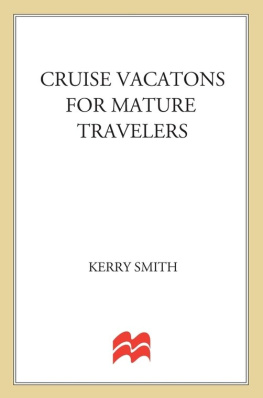

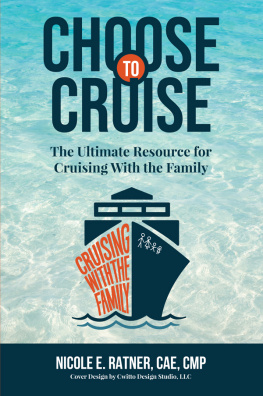

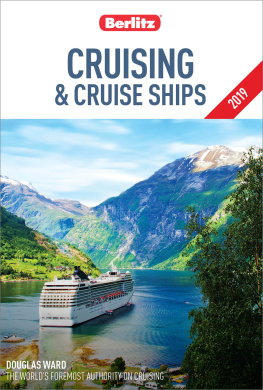
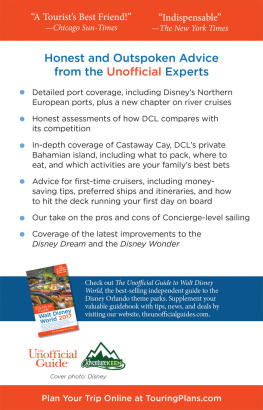
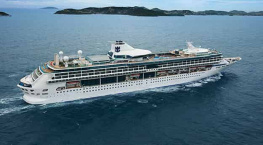
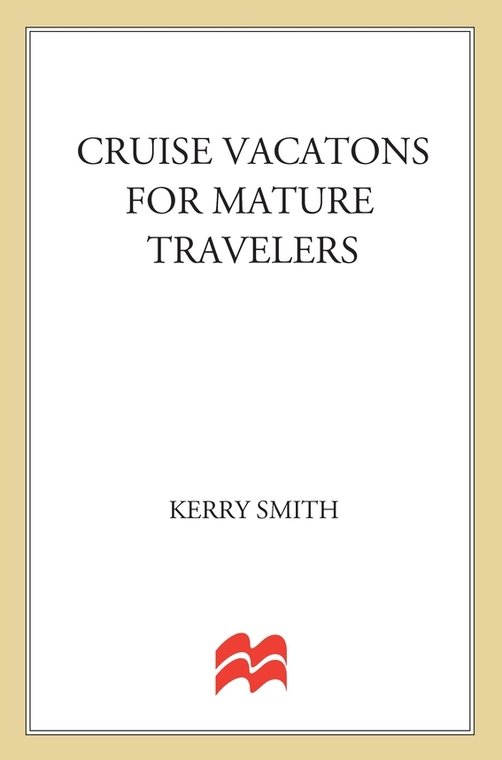

 I want to understand a countrys culture. While a number of cruises have educational themes and most offer pre-port destination lectures conducted by area experts, a cruise is usually not the best way to experience a countrys culture. In the Mediterranean, for example, ships stop in different ports for less than a day, and may hit six different countries in one week. Passengers barely have time to see the tourist attractions, much less get a feel for how the people live. For that, travelers must stay inside a country, talk tocabdrivers, and eat in small, family-owned restaurants. Lost is the conversation with the hotel clerk, the one-day car rental into the countryside, and the sights, sounds, and smells of the open-air market. On a ship, the countries are an optional activity, the cruise the actual vacation.
I want to understand a countrys culture. While a number of cruises have educational themes and most offer pre-port destination lectures conducted by area experts, a cruise is usually not the best way to experience a countrys culture. In the Mediterranean, for example, ships stop in different ports for less than a day, and may hit six different countries in one week. Passengers barely have time to see the tourist attractions, much less get a feel for how the people live. For that, travelers must stay inside a country, talk tocabdrivers, and eat in small, family-owned restaurants. Lost is the conversation with the hotel clerk, the one-day car rental into the countryside, and the sights, sounds, and smells of the open-air market. On a ship, the countries are an optional activity, the cruise the actual vacation.